Volume 47
Displaying 1-21 of 21 articles from this issue
- |<
- <
- 1
- >
- >|
-
Article type: research-article
2022 Volume 47 Pages 1-11
Published: March 31, 2022
Released on J-STAGE: April 01, 2023
Download PDF (777K) -
Article type: research-article
2022 Volume 47 Pages 13-24
Published: March 31, 2022
Released on J-STAGE: April 01, 2023
Download PDF (518K) -
Article type: research-article
2022 Volume 47 Pages 25-34
Published: March 31, 2022
Released on J-STAGE: April 01, 2023
Download PDF (524K) -
Article type: research-article
2022 Volume 47 Pages 35-45
Published: March 31, 2022
Released on J-STAGE: April 01, 2023
Download PDF (941K) -
Article type: research-article
2022 Volume 47 Pages 47-58
Published: March 31, 2022
Released on J-STAGE: April 01, 2023
Download PDF (961K)
-
Article type: book-review
2022 Volume 47 Pages 59-60
Published: March 31, 2022
Released on J-STAGE: April 01, 2023
Download PDF (422K) -
Article type: book-review
2022 Volume 47 Pages 61-62
Published: March 31, 2022
Released on J-STAGE: April 01, 2023
Download PDF (438K) -
Article type: book-review
2022 Volume 47 Pages 63-64
Published: March 31, 2022
Released on J-STAGE: April 01, 2023
Download PDF (426K) -
Article type: book-review
2022 Volume 47 Pages 65-66
Published: March 31, 2022
Released on J-STAGE: April 01, 2023
Download PDF (456K) -
Article type: book-review
2022 Volume 47 Pages 67-68
Published: March 31, 2022
Released on J-STAGE: April 01, 2023
Download PDF (425K) -
Article type: book-review
2022 Volume 47 Pages 69-70
Published: March 31, 2022
Released on J-STAGE: April 01, 2023
Download PDF (425K)
-
Article type: book-review
2022 Volume 47 Pages 71
Published: March 31, 2022
Released on J-STAGE: April 01, 2023
Download PDF (348K) -
Article type: book-review
2022 Volume 47 Pages 72
Published: March 31, 2022
Released on J-STAGE: April 01, 2023
Download PDF (359K) -
Article type: book-review
2022 Volume 47 Pages 73
Published: March 31, 2022
Released on J-STAGE: April 01, 2023
Download PDF (343K) -
Article type: book-review
2022 Volume 47 Pages 74
Published: March 31, 2022
Released on J-STAGE: April 01, 2023
Download PDF (343K) -
Article type: book-review
2022 Volume 47 Pages 75
Published: March 31, 2022
Released on J-STAGE: April 01, 2023
Download PDF (342K)
-
Article type: meeting-report
2022 Volume 47 Pages 77
Published: March 31, 2022
Released on J-STAGE: April 01, 2023
Download PDF (485K) -
Article type: meeting-report
2022 Volume 47 Pages 78
Published: March 31, 2022
Released on J-STAGE: April 01, 2023
Download PDF (485K) -
Article type: meeting-report
2022 Volume 47 Pages 79
Published: March 31, 2022
Released on J-STAGE: April 01, 2023
Download PDF (483K) -
Article type: meeting-report
2022 Volume 47 Pages 80
Published: March 31, 2022
Released on J-STAGE: April 01, 2023
Download PDF (485K) -
Article type: meeting-report
2022 Volume 47 Pages 81
Published: March 31, 2022
Released on J-STAGE: April 01, 2023
Download PDF (483K)
- |<
- <
- 1
- >
- >|
